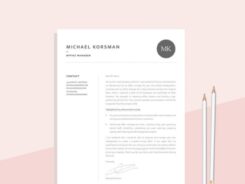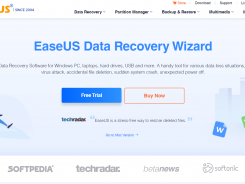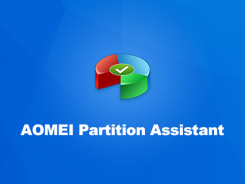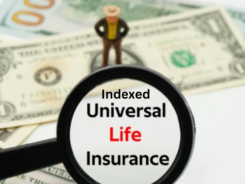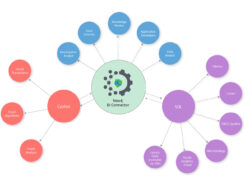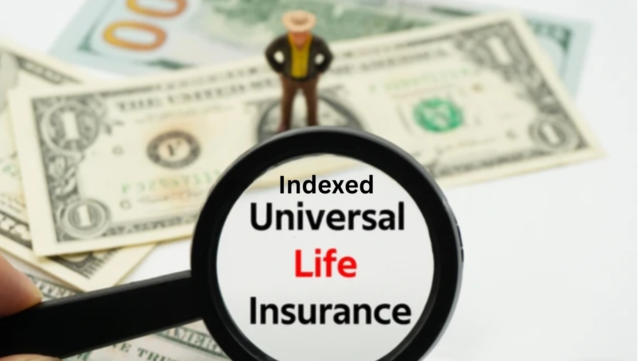Indexed Universal Life Insurance (IUL) has become a versatile and increasingly popular option for individuals seeking financial security and flexibility. IUL stands as a unique hybrid policy that combines the features of traditional universal life insurance with the potential for cash value growth linked to the performance of an underlying index, such as the S&P 500. This innovative structure offers policyholders the opportunity to benefit from market gains while providing downside protection against market downturns, making it an appealing choice for those seeking a balance between growth potential and risk management.
The popularity of IUL stems from its ability to adapt to the evolving needs and preferences of policyholders in the realm of personal finance. With its flexible premium payments, adjustable death benefits, and potential for cash value accumulation, IUL provides individuals with a customizable solution that can be tailored to their unique financial goals and circumstances. Additionally, the tax-deferred growth and income benefits associated with IUL policies further enhance their attractiveness in today’s tax-conscious environment.
As individuals continue to seek comprehensive financial planning solutions that offer both protection and growth potential, Indexed Universal Life Insurance remains a relevant and valuable option in the insurance market, providing policyholders with peace of mind and the potential for long-term financial security.
Understanding Universal Life Insurance: AnOverview
Universal Life Insurance (UL) stands as a versatile and flexible form of permanent life insurance designed to provide coverage for the duration of the policyholder’s life while also offering potential cash value accumulation. Unlike term life insurance, which provides coverage for a specific period, UL policies offer lifelong protection, making them a popular choice for individuals seeking long-term financial security.
Definition of Universal Life Insurance (UL):
Universal Life Insurance is a type of permanent life insurance that offers flexibility in premium payments and death benefits, as well as the potential for cash value growth over time. With UL policies, policyholders have the freedom to adjust their premiums and coverage amounts based on their changing needs and financial circumstances.
Differences from Whole Life Insurance:
While both Universal Life Insurance and Whole Life Insurance are forms of permanent life insurance, they differ primarily in their structure and flexibility. Whole Life Insurance features fixed premiums, guaranteed death benefits, and cash value accumulation at a predetermined rate. In contrast, Universal Life Insurance offers more flexibility in premium payments and death benefits, allowing policyholders to adjust these elements over time to suit their needs.
Flexibility and Benefits of Universal Life Insurance Policies:
One of the key advantages of Universal Life Insurance is its flexibility. Policyholders have the freedom to adjust their premium payments and coverage amounts, providing them with greater control over their policy and its benefits. Additionally, UL policies often offer the potential for cash value accumulation, allowing policyholders to build tax-deferred savings over time. These funds can be accessed during the policyholder’s lifetime for various purposes, such as supplementing retirement income or covering unexpected expenses.
- According to the American Council of Life Insurers, Universal Life Insurance accounted for 37% of total individual life insurance premiums in 2020, reflecting its popularity among consumers.
- The flexibility of UL policies appeals to individuals who value the ability to tailor their coverage to meet their changing needs and financial goals.
- UL policies offer the potential for cash value growth based on the performance of underlying investment options, providing policyholders with the opportunity to build wealth over time through various types of investment.
How Indexed Universal Life Insurance Works?
Definition of Indexed Universal Life Insurance (IUL):
Indexed Universal Life Insurance (IUL) is a type of permanent life insurance that offers policyholders the opportunity to accumulate cash value while also providing a death benefit. What sets IUL apart from traditional Universal Life Insurance is its unique feature of linking cash value growth to the performance of a stock market index, such as the S&P 500.
Basic Mechanics of IUL Policies:
In an Indexed Universal Life Insurance policy, the policyholder pays premiums, which are allocated into a cash value account. Unlike traditional UL policies, where the cash value earns a fixed interest rate, the cash value in an IUL policy has the potential to grow based on the performance of a designated stock market index.
Cash Value Accumulation and Interest Earnings in IUL:
The cash value in an IUL policy accumulates over time through premium payments and credited interest. The interest credited to the cash value account is typically linked to the performance of a selected stock market index, with the policyholder often having the option to choose from various index-linked interest crediting strategies offered by the insurance provider.
Role of Stock Market Indexes in IUL Policies:
Stock market indexes, such as the S&P 500 or the NASDAQ, play a crucial role in determining the interest credited to the cash value account in an IUL policy. The interest credited is typically based on the positive performance of the chosen index, up to a certain cap rate, while also providing downside protection in the event of market downturns, often through the inclusion of a floor rate.
- According to LIMRA, sales of Indexed Universal Life Insurance policies increased by 1% in 2020, representing a continued interest in these products among consumers.
- The flexibility and potential for cash value growth offered by IUL policies have contributed to their popularity, particularly among individuals seeking a balance between market participation and downside protection.
- IUL policies have gained traction as a retirement planning tool, offering policyholders the opportunity to build tax-deferred savings while also providing a death benefit for their beneficiaries.
Key Features and Benefits of Indexed Universal Life Insurance (IUL)
Indexed Universal Life Insurance (IUL) offers a range of features and benefits that make it an attractive option for individuals seeking both life insurance coverage and potential cash value growth.
Flexibility in Premium Payments:
One of the key features of IUL policies is the flexibility they offer in premium payments. Policyholders have the freedom to adjust their premium payments within certain limits, allowing them to adapt their coverage to their changing financial circumstances.
Tax-Deferred Growth of Cash Value:
The cash value component of an IUL policy grows tax-deferred, meaning that policyholders do not have to pay taxes on the growth of their cash value until they make withdrawals or receive distributions. This tax advantage can help policyholders maximize the growth potential of their policy’s cash value over time.
Access to Cash Value Through Loans and Withdrawals:
Policyholders have access to the cash value accumulated in their IUL policy through loans and withdrawals. These funds can be used for various purposes, such as supplementing retirement income, covering unexpected expenses, or funding education expenses. The ability to access cash value provides policyholders with financial flexibility and liquidity when needed.
The Potential for Higher Returns Through Indexed Interest Crediting:
One of the primary benefits of IUL policies is the potential for higher returns through indexed interest crediting. Unlike traditional Universal Life Insurance, where the cash value earns a fixed interest rate, the cash value in an IUL policy has the opportunity to grow based on the positive performance of a designated stock market index, up to a certain cap rate. This indexing feature allows policyholders to participate in market gains while also providing downside protection in the event of market downturns.
- According to the American Council of Life Insurers (ACLI), indexed universal life insurance accounted for 24% of total individual life insurance premiums in the United States in 2020, reflecting its popularity among consumers.
- The flexibility and tax advantages of IUL policies have made them an attractive option for individuals seeking life insurance coverage with the potential for cash value growth.
- IUL policies have gained traction as a retirement planning tool, providing policyholders with a tax-efficient way to build savings for the future while also protecting their loved ones with a death benefit.
Pros and Cons of Indexed Universal Life Insurance (IUL)
Pros of Indexed Universal Life Insurance (IUL)
- Potential for Higher Returns: IUL policies offer the potential for higher returns compared to traditional Universal Life (UL) policies. The indexed interest crediting feature allows policyholders to participate in market gains up to a certain cap rate, providing the opportunity for greater cash value growth over time.
- Flexibility in Premium Payments and Death Benefit Options: IUL policies provide flexibility in premium payments, allowing policyholders to adjust their premiums within certain limits based on their financial circumstances. Additionally, policyholders have the option to customize their death benefit, tailoring it to meet their specific needs and goals.
- Tax Advantages and Cash Value Growth Potential: The cash value component of an IUL policy grows tax-deferred, meaning that policyholders do not have to pay taxes on the growth of their cash value until they make withdrawals or receive distributions. This tax advantage, combined with the potential for indexed interest crediting, can result in significant cash value accumulation over time.
Cons of Indexed Universal Life Insurance (IUL)
- Complexity of Indexed Interest Crediting and Policy Mechanics: IUL policies can be complex, especially for policyholders who are unfamiliar with indexed interest crediting and the mechanics of how these policies work. Understanding how the indexing feature affects cash value growth and policy performance requires careful consideration and may require guidance from a financial professional.
- Potential Downside Risk in Poor Market Conditions: While IUL policies offer the potential for higher returns, they also come with the risk of market downturns. If the designated stock market index performs poorly, the policy’s cash value growth may be limited, potentially resulting in lower returns than anticipated.
- Costs and Fees Associated with IUL Policies: IUL policies often come with costs and fees, including administrative fees, cost of insurance charges, and surrender charges. These expenses can reduce the overall returns of the policy and should be carefully considered when evaluating the suitability of an IUL policy for individual financial goals.
Overall, Indexed Universal Life Insurance (IUL) offers the potential for higher returns and flexibility in premium payments and death benefit options. However, it’s essential for individuals to carefully weigh the pros and cons and consult with a financial professional to determine if an IUL policy aligns with their financial needs and objectives.
Is Indexed Universal Life Insurance Right for You?
Indexed Universal Life Insurance (IUL) can be a valuable financial tool for certain individuals, but whether it’s the right choice depends on various factors. Here are some considerations to help you determine if an IUL policy aligns with your financial goals and risk tolerances:
Factors to Consider:
- Investment Strategy: IUL policies offer the potential for higher returns through indexed interest crediting, making them suitable for individuals seeking market-linked growth without direct exposure to stock market volatility.
- Risk Tolerance: Because IUL policies are tied to the performance of stock market indexes, they inherently carry some level of risk. Individuals with a higher risk tolerance and a long-term investment horizon may be more comfortable with the potential ups and downs associated with IUL policies.
- Financial Goals: Consider your financial goals and objectives when evaluating the suitability of an IUL policy. If your primary goal is to accumulate cash value over time while maintaining a death benefit for your beneficiaries, an IUL policy may be a suitable option.
- Flexibility Needs: IUL policies offer flexibility in premium payments and death benefit options, making them appealing for individuals who value customization and adaptability in their life insurance coverage.
- Tax Planning: The tax-deferred growth of cash value in IUL policies can be advantageous for individuals looking to minimize their tax liability and maximize their wealth accumulation over time.
Importance of Consulting with a Financial Advisor:
Given the complexity of IUL policies and the importance of aligning them with your financial needs and objectives, it’s crucial to consult with a qualified financial advisor before making any decisions. A financial advisor can help assess your individual circumstances, evaluate the pros and cons of IUL policies, and provide personalized recommendations tailored to your specific goals and risk tolerance.
The popularity of IUL in corporate finance stems from its ability to adapt to the evolving needs and preferences of policyholders. With its flexible premium payments, adjustable death benefits, and potential for cash value accumulation, IUL provides corporations and businesses with a customizable solution that can be tailored to their unique financial goals and circumstances. Additionally, the tax-deferred growth and income benefits associated with IUL policies further enhance their attractiveness in today’s tax-conscious corporate environment.
IUL Calculator: Making Informed Financial Decisions
An Indexed Universal Life (IUL) calculator is a valuable tool designed to help individuals make informed decisions about their life insurance coverage. Here’s a breakdown of its purpose, benefits, and how it works:
Purpose and Benefits:
- Estimating Policy Costs: An IUL calculator allows individuals to estimate the costs associated with an IUL policy, including premium payments, fees, and charges. By inputting relevant information such as age, gender, health status, and desired coverage amount, users can get a clearer picture of the financial commitments involved.
- Predicting Cash Value Growth: One of the primary benefits of an IUL policy is its cash value accumulation potential. An IUL calculator can provide projections of how the cash value of the policy may grow over time based on various factors such as premium payments, interest rates, and policy performance.
- Determining Death Benefits: Users can use an IUL calculator to estimate the death benefit payable to beneficiaries upon the insured individual’s passing. By adjusting parameters such as coverage amount and policy duration, individuals can tailor the policy to meet their specific needs and goals.
How an IUL Calculator Works:
An IUL calculator typically functions by taking input from users on various parameters related to their financial situation and life insurance preferences. These inputs are then processed using mathematical algorithms to generate estimates and projections regarding policy costs, cash value growth, and death benefits.
Guidance on Using an IUL Calculator:
- Gather Relevant Information: Before using an IUL calculator, gather relevant information such as age, income, existing assets, and desired coverage amount.
- Input Data: Enter the required information into the calculator, including personal details, financial data, and policy preferences.
- Review Results: Once you’ve inputted all necessary data, review the results provided by the calculator. Pay attention to estimated policy costs, projected cash value growth, and potential death benefits.
- Adjust Parameters: If the results don’t align with your expectations or goals, consider adjusting parameters such as premium amounts, coverage duration, or investment strategies to see how it impacts the outcomes.
- Consult with a Financial Advisor: While an IUL calculator can provide valuable insights, it’s essential to consult with a qualified financial advisor to ensure that the calculated estimates align with your overall financial plan and objectives.
An IUL calculator serves as a powerful tool for individuals to gain clarity and understanding regarding their Indexed Universal Life insurance options. By using an IUL calculator, individuals can make more informed decisions about their life insurance coverage, estimate costs, project cash value growth, and tailor policies to meet their specific needs and goals.
Wrap Up
Indexed Universal Life Insurance (IUL) offers a unique blend of flexibility, potential for growth, and tax advantages that make it an attractive option for many individuals seeking life insurance coverage with cash value accumulation. Throughout this blog, we’ve explored the fundamentals of IUL, including how it works, its key features and benefits, as well as its potential drawbacks. While IUL may not be suitable for everyone, it can be a valuable tool in the financial planning toolkit for those looking to balance protection, growth, and flexibility in their insurance strategy. As with any financial product, it’s crucial to carefully evaluate your needs, goals, and risk tolerance, and to seek guidance from a qualified financial advisor to determine if IUL is the right choice for you.
FAQs (Frequently Asked Questions):
- Is Indexed Universal Life Insurance (IUL) a Safe Investment?
- While IUL policies offer the potential for higher returns compared to traditional universal life insurance, they are not without risks. The performance of the stock market indexes to which the policy’s cash value is linked can affect the growth of the policy’s cash value. Additionally, policyholders should be aware of any caps, floors, or participation rates that may limit the policy’s growth potential.
- Can I Access the Cash Value in My Indexed Universal Life Insurance Policy?
- Yes, one of the benefits of IUL is the ability to access the cash value through policy loans or withdrawals. However, it’s essential to understand the potential tax implications and any associated fees or interest charges before accessing the cash value of the policy. Policyholders should also consider how accessing the cash value may impact the policy’s death benefit and long-term performance.
- How Does Indexed Interest Crediting Work in Indexed Universal Life Insurance?
- Indexed interest crediting allows the cash value of an IUL policy to grow based on the performance of a selected stock market index, such as the S&P 500. The insurance company typically sets caps, floors, and participation rates that determine how much of the index’s growth is credited to the policy’s cash value. This mechanism provides the potential for higher returns compared to traditional fixed interest crediting but also introduces market-related risks that policyholders should understand before investing in an IUL policy.


